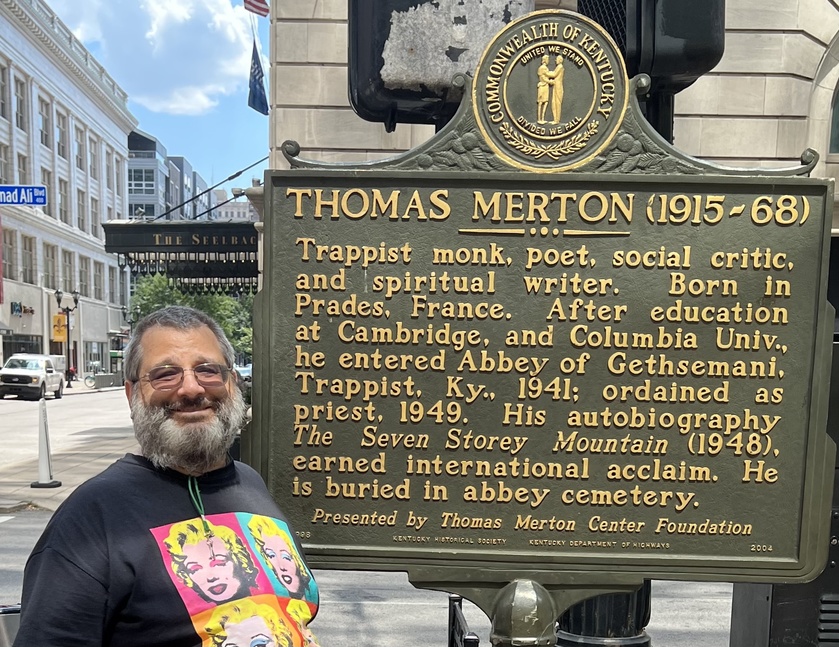I’m visiting Gethesamani Monastery outside of Louisville, Kentucky. It’s been a powerful experience. I will post some photos of the monastery, but I want to include this story.
In the book, “Conjectures of a Guilty Bystander,” Merton writes about the experience of a revelation that came to him on a trip he made to Louisville. There is plaque that has been put up to honor his here and experience:
“In Louisville, at the corner of Fourth and Walnut, in the center of the shopping district, I was suddenly overwhelmed with the realization that I loved all these people, that they were mine and I theirs, that we could not be alien to one another even though we were total strangers. It was like waking from a dream of separateness, of spurious self-isolation in a special world. . . .
This sense of liberation from an illusory difference was such a relief and such a joy to me that I almost laughed out loud. . . . I have the immense joy of being man, a member of a race in which God Himself became...
In the book I am writing, I have a chapter titled "Human Freedom." It's basically my best attempt at explaining free will. My theory is dependent on a few things that are too complicated to explain in this post. Anyway, the second to last section of this chapter is called "Implications." In that section, I give a logical argument. I'm wondering what Open Theists think of this or how they would refute it. This is it:
1. God chose to create all information.
2. Persons are a subset of information God created.
3. The information persons perceive is a subset of the information God chose to create.
4. Persons make choices based on the information they have.
5. A person's choices are a subset of information.
C. Therefore, a person's choices are a subset of what God chooses.















